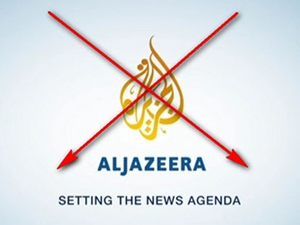

Part of the organization’s argument for inclusion is the number of people turning to its online coverage, specifically during the Arab uprisings.

Īl Jazeera English continues to push for wider inclusion in the cable market. The cable markets that have access to Al Jazeera English are New York, N.Y.
#AL JAZEERA TV ENGLISH LIVESTATION FULL#
audiences exclusively via satellite or online, Al Jazeera English is also carried by a handful of cable providers- Time Warner Cable, Buckeye Cable, Burlington Telecom, Full Channel, Comcast, and Verizon Fios. While Arab news channels in the Middle East and North Africa tend to be delivered to U.S. Īl Jazeera English is slowly gaining popularity in the United States. However, the Qatari royal family is now beginning to cut spending for the network’s "English news-gathering efforts," and investing in sports coverage, specifically European soccer. When the English-language channel was launched in 2006, there were no budgetary limits and the network was not structured to collect payments from advertising sales. According to two former Al Jazeera employees, after the 2007 financial crisis, Qatar purportedly placed minimal restrictions on what news executives were allowed to spend. "Al Jazeera was never launched as a profit center," Middle East scholar Abdallah Schleifer told Bloomberg Businessweek.

In addition to the initial startup grant, the Al Jazeera network "is kept alive by the $100 million it receives annually from the Qatari government," according to journalist, Vivian Salama. By 2010 Al Jazeera had expanded to a network with annual expenditures reaching $650 million, $29 million of that from its subsidiary, Al Jazeera English. Īl Jazeera was started in 1996 as a television channel with a $150 million grant from the emir of Qatar. Exact numbers on their operating budgets are also unknown, but some estimates put the figures in the hundreds of millions. Īl Jazeera and Al Arabiya lead the Arab television news business, though it is difficult to get figures on viewership. Siblani said that typically this programming appeals to more recent immigrants who are closely attuned to events in Arab countries. Īrab news outlets provide information directly from "the homeland" and offer a wide array of content, making it possible for viewers to access specific programming, based on country of origin, political views, or religious affiliation. Viewers in the United States are able to pick up the signals from the Arab news channels, usually over satellite Galaxy 19. This means channels not available from cable or major satellite providers are accessible via free-to-air services. Free-to-air programming is transmitted in unencrypted form, allowing anyone with the appropriate equipment to receive the signal and view content without a cable or satellite subscription. There are numerous Arab satellite channels and networks broadcasting news across the Middle East and North Africa, many of which can be accessed in the United States on websites such as Live Station, as well as over satellite because they are "free-to-air" feeds.


 0 kommentar(er)
0 kommentar(er)
